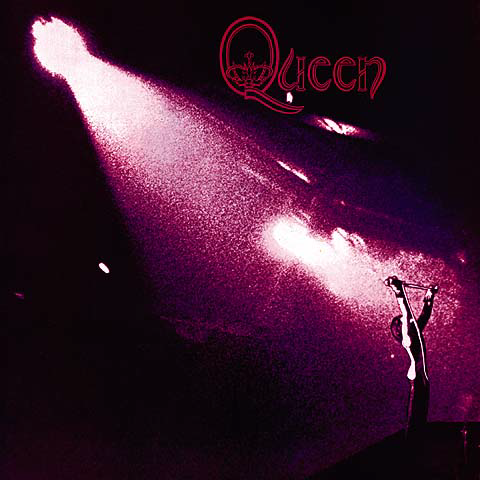
Queen I
Queen I is the debut studio album by the British rock band Queen. Released on 13 July 1973 by EMI Records in the UK and by Elektra Records in the US, it was recorded at Trident Studios and De Lane Lea Music Centre, London, with production by Roy Thomas Baker, John Anthony and the band members themselves.[4]
More information...
Queen II
Queen II is the second studio album by the British rock band Queen. It was released on 8 March 1974 by EMI Records in the UK and Elektra Records in the US. It was recorded at Trident Studios and Langham 1 Studios, London, in August 1973 with co-producers Roy Thomas Baker and Robin Geoffrey Cable.
More information...
Sheer Heart Attack
Sheer Heart Attack is the third studio album by the British rock band Queen, released on 8 November 1974 by EMI Records in the United Kingdom and by Elektra Records in the United States. Digressing from the progressive themes featured on their first two albums, the album featured more pop-centric and conventional rock.
More information...
A Night at the Opera
A Night at the Opera is the fourth studio album by the British rock band Queen, released on 21 November 1975 by EMI Records in the United Kingdom and by Elektra Records in the United States. it was reportedly the most expensive album ever recorded at the time of its release.
More information...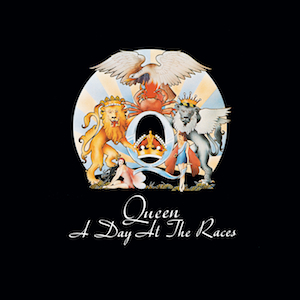
A Day at the Races
A Day at the Races is the fifth studio album by the British rock band Queen, released on 10 December 1976 by EMI Records in the United Kingdom and by Elektra Records in the United States. Recorded at The Manor, Sarm East, and Wessex Sound Studios in England.
More information...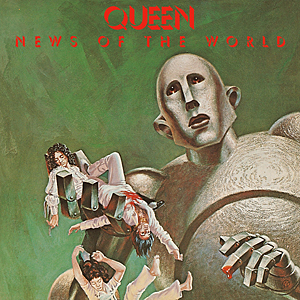
News of the World
News of the World is the sixth studio album by the British rock band Queen, released on 28 October 1977 by EMI Records in the United Kingdom and by Elektra Records in the United States. News of the World was the band's second album to be recorded at Sarm and Wessex Sound Studios in London, and engineered by Mike Stone.
More information...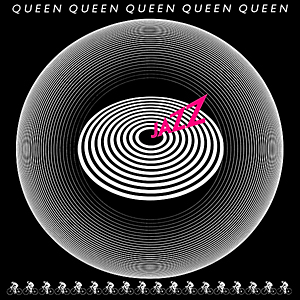
Jazz
Jazz is the seventh studio album by the British rock band Queen. It was released on 10 November 1978 by EMI Records in the United Kingdom and by Elektra Records in the United States. Produced by Roy Thomas Baker, the album artwork was suggested by Roger Taylor, who previously saw a similar design painted on the Berlin Wall.
More information...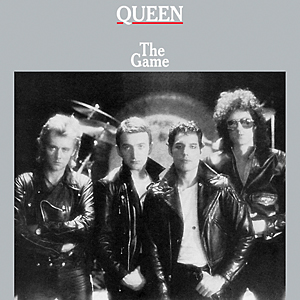
The Game
The Game is the eighth studio album by the British rock band Queen. It was released on 30 June 1980 by EMI Records in the UK and by Elektra Records in the US. The Game features a different sound from its predecessor, Jazz (1978). The Game was the first Queen album to use a synthesizer[5] (an Oberheim OB-X).
More information...
Flash Gordon
Flash Gordon is the ninth studio album and first soundtrack album by the British rock band Queen, released on 8 December 1980 by EMI Records in the UK and on 27 January 1981 by Elektra Records in the US. It is soundtrack to science fiction film Flash Gordon and features lyrics on two tracks.
More information...
Greatest Hits
Greatest Hits is a compilation album by the British rock band Queen, released worldwide on 26 October 1981.[1] The album consisted of Queen's biggest hits since their first chart appearance in 1974 with "Seven Seas of Rhye", up to their 1980 hit "Flash"
More information...
Hot Space
Hot Space is the tenth studio album by the British rock band Queen. It was released on 4 May 1982 by EMI Records in the UK and by Elektra Records in the US. Marking a notable shift in direction from their earlier work, they employed many elements of disco, funk, rhythm and blues, dance and pop music on the album.
More information...
The Works
The Works is the eleventh studio album by the British rock band Queen. It was released on 27 February 1984 by EMI Records just shortly after recording for the album had been completed in the United Kingdom and it is the band's first studio album to be released by Capitol Records in the United States.
More information...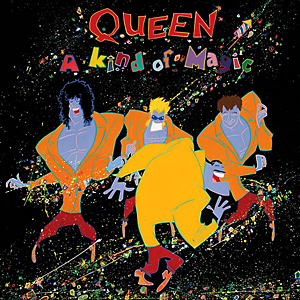
A Kind Of Magic
A Kind of Magic is the twelfth studio album by the British rock band Queen, released on 2 June 1986 by EMI Records in the UK and by Capitol Records in the US. It is based on the soundtrack to the film Highlander, directed by Russell Mulcahy.
More information...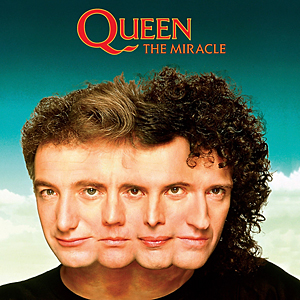
The Miracle
The Miracle is the thirteenth studio album by the British rock band Queen, released on 22 May 1989 by Parlophone Records and Capitol Records in both the United Kingdom and the US, respectively, where it was the band's first and final studio album to be released on those respective labels.
More information...
Innuendo
Innuendo is the fourteenth studio album by the British rock band Queen, released on 4 February 1991 by Parlophone in the United Kingdom[4] and it is the band's first studio album to be released by Hollywood Records in the United States. It was the band's last album to be released in lead singer Freddie Mercury's lifetime.
More information...
Greatest Hits II is a compilation album by the British rock band Queen, released on 28 October 1991.[3] The album consisted of Queen's biggest hits between 1981 and 1991, from the UK chart-topper "Under Pressure" to "The Show Must Go On" Freddie Mercury designed the crest on the album cover, using the astrological signs of the four members
More information...
Made in Heaven
Made in Heaven is the fifteenth studio album by the British rock band Queen, released on 6 November 1995 by Parlophone Records in the United Kingdom and by Hollywood Records in the United States. It was the band's first and only release solely under the name "Queen" after the death of lead singer Freddie Mercury in 1991.
More information...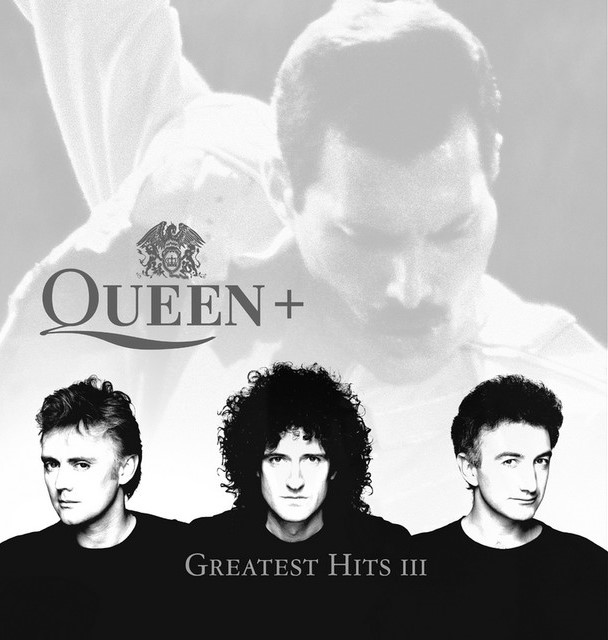
Greatest HitsIII
Greatest Hits is a compilation album by the British rock band Queen, released worldwide on 26 October 1981.[1] The album consisted of Queen's biggest hits since their first chart appearance in 1974 with "Seven Seas of Rhye", up to their 1980 hit "Flash"
More information...